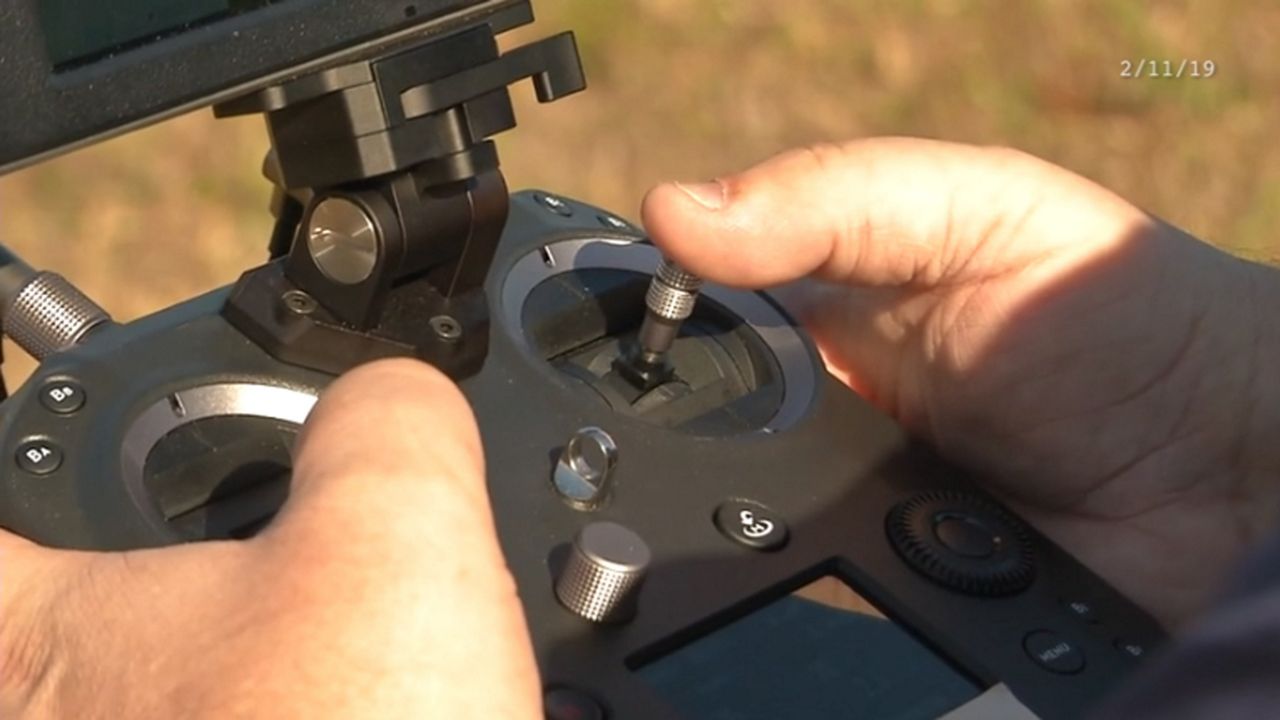DAYTONA BEACH, Fla. — The Daytona Beach Police Department is getting ready should terrorists ever target their city. They’re one step closer to having a terrorism interdiction drone after city commissioners voted Wednesday to allow the agency to apply for federal grants.
- Commissioners to allow DBPD to apply for drone grant money
- Chief Craig Capri says it's to combat any possibility of terrorism
- More Volusia County coverage
The decision would allow DBPD to apply for over $33,000 in grant funds from the U.S. Department of Homeland Urban Area Security Initiative to purchase the drone.
The police department has already been using drones for the last two years.
“We have four drones in our aviation unit, which we’ve had great success with those, so this drone is going to be really used for homeland security purposes," said Chief Craig Capri of the Daytona Beach Police Department
While they have not settled on a specific model, they know what this drone would be able to add to the department.
“This drone can be deployed in those areas, say for example a chemical attack, where you don't want to put a police officers in there for risk of getting exposed. We can fly the drone in here. It’s got special detectors that can detect gas," Capri said.
He added, “It is unbelievable what we can do with this piece of equipment. It can get us in there, we can actually be able to drop things if we need to drop things in this zone. Very high tech, very complex.”
While Capri said no terrorist threats have been made against Daytona Beach, with events that draw big crowds like Bike Week and the Daytona 500, it's important to prepare now.
“Terrorism is going on around the world and its happening here in this county, 9/11 and other issues, domestic terrorism issues we’ve had here. So when you look at that, you can’t just sit back and say it's never going to happen here, because it could happen anywhere at any time," said Capri.
And with zero cost to the taxpayers, he believes a terrorism interdiction drone is a good way to prepare for the worst.
“We are going to do everything we can working with our federal, state and local partners to get ahead of a lot of this stuff, do information intelligence sharing, and be prepared in case, God forbid, something does happen, we are ready to go," said Capri.



